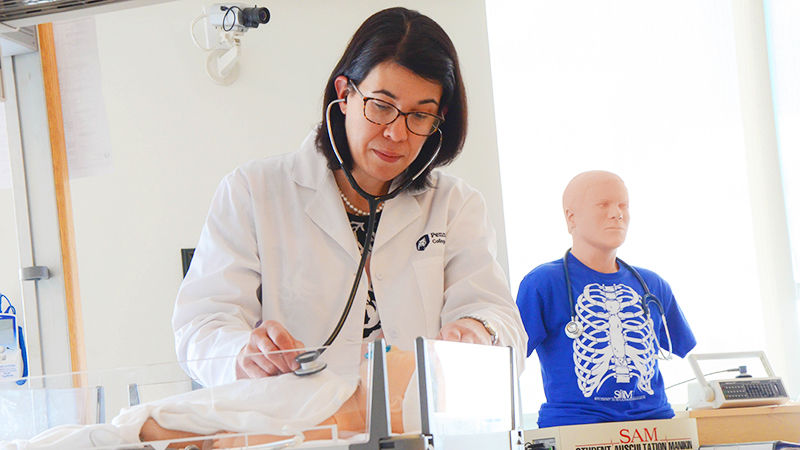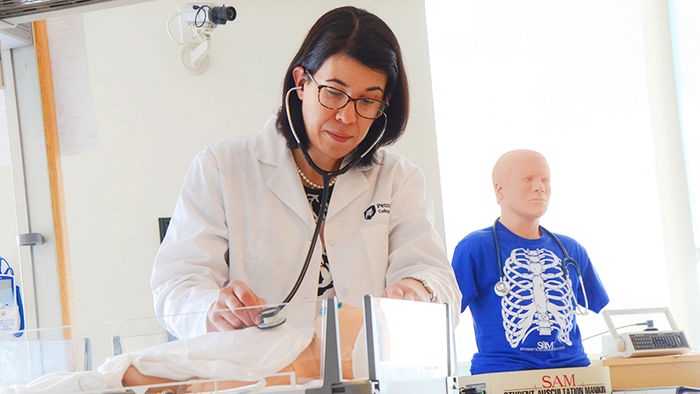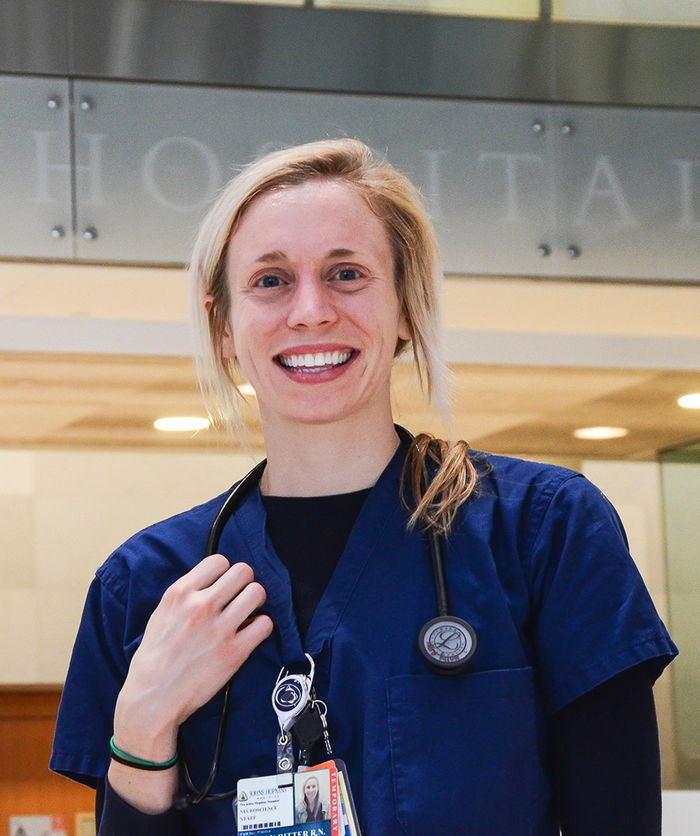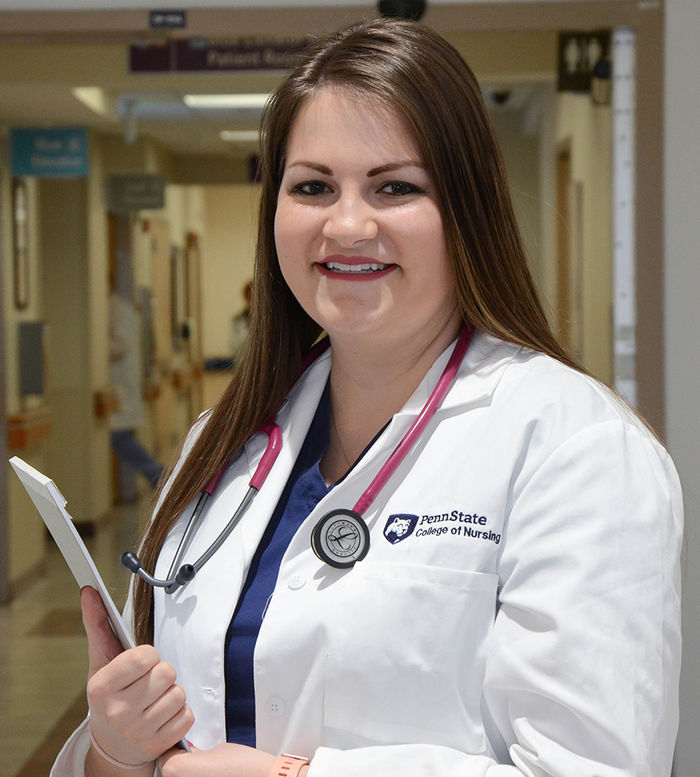

This dialog contains the full navigation menu for this site.

Sometimes, the goals we set and achieve for ourselves don’t end up being all we envisioned, especially when it comes to our careers. It’s not unusual to work two or three or even more jobs before we find the one that fits us best. We make changes for career advancement, for better compensation, or because of a layoff. More and more adults are returning to school for a second degree, related to or completely different than their first.
A desire for personal fulfillment and job security often leads people to chose nursing as a second profession. According to statistics from the U.S. Bureau of Labor, the nursing profession is projected to grow at least 15 percent until 2024, much faster than the average for all occupations.
Accelerated baccalaureate programs are the fastest way to licensure as a registered nurse for those who have already completed a degree in another discipline. These programs are only continuing to gain popularity. The Bureau reports that in 2018, there were 282 accelerated baccalaureate programs available nationwide, and 30 new ones were in the planning stages.
Penn State Altoona offers one of those accelerated baccalaureate nursing programs. In its ninth full year, it maintains a steady number of students, and about 240 will have graduated from it by December 2019.

Lara Dolphin chose nursing as a second career in order to provide compassionate care to others.
Lara Dolphin completed the program in December 2018. She earned her first degree from Penn State’s Dickinson School of Law in 1999, then moved to Pittsburgh where she clerked for a Superior Court judge. She then went on to work at a law firm in the city, and later for Pennsylvania’s CAT Fund (now MCARE) in Harrisburg where she helped mediate high-exposure medical malpractice claims. Subsequent employment at an insurance company had her working closely with medical experts in analyzing and assessing patient care.
She married and settled in Hollidaysburg, stepping away from her career to raise four children. When the time came for her to reenter the workforce, she reflected on her goals and aspirations. “I thought about when I was doing medical malpractice law and how I enjoyed the medical side of that. I thought about how I enjoy taking care of people. I decided I wanted to be in a profession that embodied both compassionate caring and scientific reasoning.”
Nicole Koontz graduated from Jefferson College of Health Sciences in 2017 with a degree in emergency services. While working as a paramedic, she spent countless hours in the intensive care unit and the emergency department. She says she fell in love with the nurse-patient relationship. “The amount of time you get to spend with the patients, and the impact you have on their care is just so unique. I decided to get my nursing degree because of that.”
Molly Ritter, who earned her degree in kinesiology from University Park, decided to move into nursing for the versatility of the profession along with the opportunity to work with people and make a difference in their lives.

Molly Ritter, Second Degree Nursing Graduate
Each woman had heard good things about Penn State Altoona’s second degree nursing program and made the decision to enroll. “When I started the program, I thought and hoped I would love nursing,” states Dolphin. “When we started working with patients during our clinical rotations, I knew that I would love nursing.”
Sharon Lacue, assistant teaching professor in nursing, says that whether students come into the program directly from their undergraduate studies or they’ve been away from college for years, they all have the same immediate goal. “They want to become nurses, and they are ready for what that takes. They want the application, and that’s what we can give them.”
“When you realize you want to be a nurse, and you go back to school to get that degree, you’re just on a whole different level of maturity,” says Koontz. “You’re ready to study, you want to learn, and you want to get it done. I liked that this program is accelerated.”
Indeed, it is an intensive 16 months, focused solely on nursing while building on the fundamentals of biology and science. “It’s fatiguing, but it taught me how to balance the demands of nursing. I use those skills I learned during the program every day at work,” says Ritter, who is now with the neurosurgical ICU at Johns Hopkins University.
Lacue says students are often able to bring what they learned in their undergraduate studies to the classroom and rotation facilities. “They're bringing something unique with them as opposed to the general student just out of high school. The person who studied kinesiology gets really engaged when we’re talking about exercising with patients. The person who studied nutrition is thinking how they can draw on certain aspects of that when we’re discussing diet.”
Even someone completely new to the health field can find ways of using their previous skill set to enhance their new learning environment. “It’s not about, ‘oh, I failed at my first job’ or ‘I couldn’t make it as a such-and-such.’ Coming into a second degree program is simply a continuation of learning,” says Lacue.
Dolphin agrees, believing that we live in a world where knowledge can’t be tidily put into neat categories. Changing professions allows us to broaden our area of understanding and achieve more than what is possible with one degree and one set of experiences. She easily compares her time in law to her current career path. “Both lawyers and nurses are advocates. While attorneys use the facts of the case and the interpretation of the law to argue on behalf of their clients, nurses use clinical experience and evidence-based knowledge to advocate on behalf of their patients. I recently joined The American Association of Nurse Attorneys and feel that, with both degrees, my encore career will allow me to give voice to people in need.”
Lacue sees graduates of the program accept jobs all over the country in many healthcare professions. “From nurse practitioner to pediatrics to psychiatric work, the possibilities and options are endless for these graduates.” Further, the nursing department conducted a five-year study, and results showed that nearly all of the graduates are still working in the health care field.

Nicole Koontz, Second Degree Nursing Graduate
Koontz is working at UPMC Altoona Hospital in the medical progressive care unit. “I had a total of five job offers when I graduated. I think when you come out of a program like the one at Penn State Altoona, employers know that you finished an incredibly intense program, you’re well-prepared and very ready to be in the workforce.”
“I feel fulfilled and like I’m doing meaningful things in this career,” states Ritter. “There are some sad days, but there are also some really happy days when I know that I acted quickly, resuscitated someone appropriately, and saved a life—when I feel like I made a difference.”
Dolphin encourages anyone thinking about pursuing a second degree to go for it, that it will be difficult, but the rewards are worth it. Following a calling into nursing or another career can have countless benefits— for you and the community you serve.


